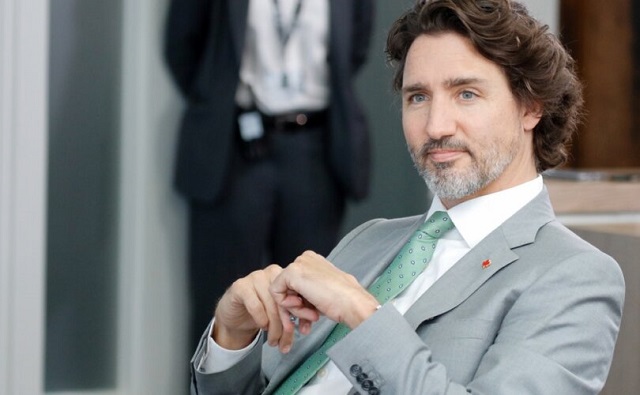Alberta
Meet Alberta’s first Anti-Racism Advisory Council

Meet Alberta’s first Anti-Racism Advisory Council
February 25, 2019 – from Government of Alberta
Alberta’s first council dedicated to combating racism will bring expertise and experience to assist in government’s commitment to end racism.
The council includes 24 members plus Education Minister David Eggen, who is responsible for government’s anti-racism initiative. The council will advise government as it develops strategies to end racism and discrimination in Alberta. This council is the first of its kind in the province.
More than 300 Albertans applied to participate on the council. Members were selected for their demonstrated leadership abilities and experience in advocating for diverse communities. The council includes people from various faiths and other diversities, and members represent regions across the province.
“Establishing the Anti-Racism Advisory Council is an important part of our government’s efforts in fighting racism in this province. Each of the council’s new members brings a wealth of knowledge and lived experience to our government’s anti-racism work. I have a great deal of confidence in this new council and I look forward to working together to ensure all Albertans feel safe and respected. We will work together towards a common goal of ending racism in our province. We owe this to our future generations.”
Minister Eggen will have two co-chairs on the Anti-Racism Advisory Council: Heather Campbell and Lucenia Ortiz.
“I am extremely proud to share the leadership of the Alberta Anti-Racism Advisory Council (AARAC). Thank you, Minister Eggen, for entrusting me with this fundamental element of the government’s plan to address racism. All Albertans will benefit from AARAC’s inspired work developing community-based solutions to address racism and remove barriers, allowing everyone to thrive.”
“I am honoured to be selected as one of the co-chairs of the Alberta Anti-Racism Advisory Council. I look forward to working with the members of the Advisory Council who share a commitment to tackle racism and make Alberta a more welcoming and inclusive province.”
Council member biographies
Co-Chairs
Heather A. Campbell, Calgary
Campbell is a practising licensed professional engineer and procurement manager with the Alberta Electric System Operator. Campbell is a member of the advisory council for Western Engineering, sits as vice-president of the board of directors of Downstage Theatre and is a board member of Arts Commons.
Lucenia Ortiz, Edmonton
Ortiz is a planner with the City of Edmonton’s Citizen Services. Ortiz is a founding member of the Edmonton Multicultural Coalition and a member of the Multicultural Health Brokers Co-op.
Council Members
Shan Ali, Calgary
Ali is the owner and publisher of Express Media Network Ltd. where he launched Weekly Canadian Express, one of Western Canada’s largest South Asian newspapers, covering Calgary, Edmonton and Fort McMurray. Ali also publishes South Asian Xpress Magazine and hosts the Sangeet Studio Radio show. Ali is a board member for the Asian Heritage Foundation and the South Asian Canadian Seniors Society.
Sonia Aujla-Bhullar, Calgary
Aujla-Bhullar is a public school teacher in Calgary and a PhD candidate in the Werklund School of Education at the University of Calgary. Her current work centres on exploring multi-ethnic and multicultural community engagement within schools as part of present-day inclusive education measures. Her work with community organizations includes local and national initiatives within the Sikh community and she is a member of the South Asian Police Advisory Committee for the Calgary Police Service.
Melodie Bastien, Brocket
Bastien is the NorthStar parent connector at Opokaasin Early Intervention Society in Lethbridge. She provides one-on-one support, wraparound support services and cultural programming for families. Bastien participates in the Blackfoot Traditional way of life within the Blackfoot Confederacy.
Iman Bukhari, Calgary
Bukhari is a multimedia professional working as a planner in channel management for the City of Calgary. Bukhari is also an adjunct professor at Columbia College where she teaches human rights and diversity courses. She is the founder and CEO of the Canadian Cultural Mosaic Foundation.
Yic Camara, Edmonton
Camara is an integration and community liaison agent with Centre d’acceuil et d’etablissement of Northern Alberta, establishing and maintaining contact with French multicultural communities in Edmonton. Camara has been actively involved in the Guinean community and sits on the board of directors for Institut Guy-Lacombe de la Famille (Parent Link Centre) in Edmonton.
Nadine Eagle Child, Lethbridge
Eagle Child is a student counselor at Red Crow Community College. She is an executive member of the Apiistamiiks – White Buffalo Trail Blazers, a grassroots group fighting against racism, hate and discrimination in Southern Alberta. She has served as the co-chair of the Employment and Education subcommittee with the City of Lethbridge’s Interagency Group, and chair of the Student Success and Retention working group under the Iniskim Education Committee at the University of Lethbridge.
Michael Embaie, Calgary
Embaie is a practising, licensed immigration consultant and has volunteered with not-for-profit local, provincial, national and international organizations for over 25 years, including as president and board member of the Southern Alberta Heritage Language Association and as founding member and president of the African Community Association of Calgary.
Sithara Fernando, Fort McMurray
Fernando is a community-based environmental monitoring instructor at Keyano College. Fernando formerly served as the secretary and chair of the governance committee for the Pride Centre of Edmonton and the vice-chair of Some Other Solutions crisis prevention centre. Fernando is a registered professional forester and a mental health advocate.
Nahla Gomaa, Edmonton
Gomaa is an associate clinical professor, researcher and educator at the faculty of medicine and dentistry at the University of Alberta. Gomaa serves as the Interfaith Portfolio chair in the Edmonton Council of Muslim Communities, contributes to the city’s commemoration of Remembrance Day and organizes Islamic history month at city hall.
Adil Zaki Hasan, Edmonton
Hasan is the vice-president and chief operations officer at Hasco Development Corporation. Hasan is active in the community including as vice-president of civic engagement for the Alberta Muslim Public Affairs Council and board member for Al Mustafa Academy and Humanitarian Society.
Zahro Hassan, Edmonton
Hassan is a doctoral student at the University of Alberta. She has extensive community and youth development experience within several multiracial/multicultural immigrant communities in Toronto, Ottawa and Edmonton. Hassan is a board director at the Edmonton Social Planning Council and a former support staff for the Toronto District School Board Task Force on the Success of Students of Somali Descent.
Abdulghani Haymour, Edmonton
Haymour is a business manager who works closely with the Canadian Arab Friendship Association (CAFA) to assist community members in areas such as filing government documents, accessing government resources and facilitating events. Haymour attends CAFA board meetings as a guest member.
Bernadette Iahtail, Edmonton
Iahtail is co-founder and executive director of Creating Hope Society, a society founded for the survivors of the Sixties and Seventies Scoop of Indigenous children in care. Iahtail is an active member of the Edmonton Coalition for Human Rights, Aboriginal coalitions, the Edmonton Aboriginal Leadership Team and Stony Plain Wapekin Leadership Team.
Adebayo Katiiti. Edmonton
Katiiti is the founder and president of RARICAnow, an organization for all LGBTQ refugees in Canada. Katiiti advocates for the rights of refugees by creating awareness of their existence in Canada and ensuring that newcomers and refugees learn Canadian culture and get support in navigating the refugee and settlement process.
Feisal Kirumira, Edmonton
Kirumira is special advisor to the dean of international students at Augustana campus, University of Alberta. Kirumira chairs the International Student Engagement Committee and participates on the Bridging Program Advisory Committee and the International Week planning committee.
Omar Najmeddine, Edmonton
Najmeddine is the executive director of the Al Rashid Group and leads all corporate functions for the organization. He is a board member with the American University of Beirut Alumni Foundation and a former board member with the Red Cross, and Community Interest Companies Association.
Roy Pogorzelski, Lethbridge
Pogorzelski is the director of Indigenous Student Affairs, an instructor for the Dhillon School of Business at the University of Lethbridge and owner and operator of three business. Pogorzelski is a member of the U of L senate, board member with the YMCA of Lethbridge, president of the Rotary Club of Lethbridge Mosaic and board member of the chamber of commerce. Pogorzelski is also an appointed director for the Canadian Race Relations Foundation (CRRF) and sits as the CRRF advisor to the National Canadian Coalition of Municipalities Against Racism and Discrimination committee.
Tasneem Rahim, Calgary
Rahim is the director of fund development and alumni engagement at Bow Valley College. Rahim serves as a member and manages community relations on the Aga Khan Council for the Prairies, and is the communications member of the Management Committee for Generations: Multi-Generational Housing and Community Centre Campus Calgary.
Judy Shapiro, Calgary
Shapiro is the former associate executive director of the Calgary Jewish Federation, overseeing all of its programming areas. She is a member of the Calgary Interfaith Council and a regular volunteer at the Calgary Interfaith Food Bank. Shapiro is a past board member for the Calgary Council of Christians and Jews and the Committee on Race Relations and Cross-Cultural Understanding.
Pavit Sidhu, Calgary
Sidhu is the WiseGuyz program facilitator and sexual health educator at the Centre for Sexuality in Calgary. Sidhu served as a member of the University of Calgary senate in 2013 and as an appointee of the students’ union representing the undergraduate student body.
Delainah Velichka, Worsley
Velichka is a school board trustee with Peace River School Division No. 10. Velichka’s portfolios include Administrators’ Association, Teacher Board Advisory Committee, Transportation Liaison Committee, Audit Committee, Alberta School Boards Association Second Language Task Force, Clear Hills Trades Training, Council of School Councils Liaison Committee, Discipline Committee and the First Nations, Métis & Inuit Liaison Committee.
Teresa Woo-Paw, Calgary
Woo-Paw is owner and principle of Teresa Woo-Paw & Associates Ltd. Woo-Paw is a member of the board of directors for the Calgary Arts Foundation, board president of Action Chinese Canadians Together Foundation and is a founding member and current co-chair of the Asian Heritage Foundation.
Alberta
Danielle Smith warns arsonists who start wildfires in Alberta that they will be held accountable

From LifeSiteNews
The Alberta government has created an ad campaign highlighting the fact that most fires are caused by humans and not ‘climate change,’ as many left-leaning politicians claim.
In preparation for the so-called wildfire “season,” Alberta Premier Danielle Smith sternly warned anyone caught starting blazes in her province, including arsonists, that they will face charges and be held fully “liable” for all costs associated with the fires.
“As we approach the wildfire season, it is important to understand that 67% of wildfires in Alberta are started by people,” Smith posted Monday on X.
“If you start a wildfire, you can be charged, fined, and held liable for all costs associated with fighting the wildfire.”
Smith made the comments after last year revealing that most of the wildfires in her province (500 of the 650) were caused by humans and not “climate change,” as has been pushed by the legacy media and opposition politicians.
“All I know is in my province we have 650 fires and 500 of them were human caused,” she said, “so we have to make sure that when people know that when it’s dry out there and we get into forest fire season that they’re being a lot more careful because anytime you end up with an ignition that happens it can have devastating consequences.”
To go along with Smith’s Monday message, the Alberta government has also created an ad campaign highlighting the fact that most fires are caused by humans and not “climate change,” as many left-leaning politicians claim.
As reported by LifeSiteNews last year, Smith ordered arson investigators to look into why some of the wildfires that raged across the vast expanse of the province had “no known cause” shortly after they spread.
During the campaign of Alberta’s 2023 election, Smith, whose United Conservative Party won a majority government, had to pause to deal with many wildfires that suddenly, out of nowhere, ravaged the province. The fires came on suddenly and uncharacteristically considering the heavy snowfall in the province in early March and rain in April.
LifeSiteNews reported that despite the arrest of multiple arsonists, Canada’s mainstream media and the federal government have been pushing a narrative attributing the recent wildfires to “climate change.”
Indeed, in January, LifeSiteNews reported that a man from Quebec admitted to starting 14 forest fires himself. This put a chill to the legacy media’s push that the fires in the province were caused by “climate change.”
However, statistics from Canada’s National Fire Database show that wildfires have gone down in recent years and peaked in 1989.
As for Canadian Prime Minister Justin Trudeau, he has repeatedly used “climate change” and forest fires as a catalyst for propping up his government’s much-maligned carbon tax, which Smith opposes. He has blamed the fires on “climate change.”
A June 2017 peer-reviewed study by two scientists and a veteran statistician confirmed that most of the recent global warming data have been “fabricated by climate scientists to make it look more frightening.”
Trudeau has been calling for increased bans on Canada’s natural resources, of which Alberta has in abundance.
Smith has vowed to fight Trudeau on his attacks against Alberta’s oil and gas industry.
The reduction and eventual elimination of so-called “fossil fuels” and a transition to unreliable “green” energy has also been pushed by the World Economic Forum (WEF), the globalist group behind the socialist “Great Reset” agenda in which Trudeau and some of his cabinet are involved.
Alberta
Free Alberta Strategy backing Smith’s Provincial Priorities Act
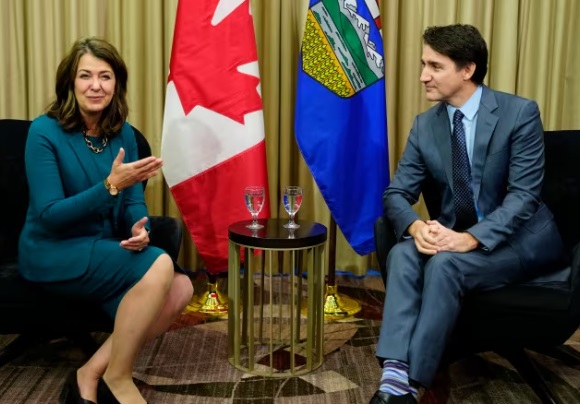
News release from Free Alberta Strategy
Premier Danielle Smith had a message for Ottawa last week.
Keep out.
On Wednesday, the Premier rolled out her latest weapon in the fight against federal intrusions into provincial jurisdiction.
If passed, Bill 18 – the Provincial Priorities Act – aims to align federal funding with provincial priorities, ensuring that said funding reflects Alberta’s interests.
The legislation stipulates that any agreements between the federal government and any provincial entities – including municipalities – must receive provincial approval to be considered valid.
Smith has already given it a nickname: “the stay-out-of-my-backyard bill.”
It’s an apt description of the legislation, especially considering that’s what the federal government has been doing for years – encroaching into Alberta’s jurisdiction.
The legislation shouldn’t come as a surprise to anyone.
We all know that most deals the Alberta government enters into with the federal government don’t work out for Albertans.
We end up paying more in federal taxes than gets spent in federal spending on the programs.
The programs come laden with restrictive conditions that undermine our autonomy, and are often detrimental to our ability to provide the services.
This is especially true with regard to the recent agreement between Ottawa and the provinces that allows the federal government to nationalize childcare.
The childcare agreement has come under heavy criticism due to funding shortfalls in the deal.
It also applies to housing, where despite Alberta accounting for 12% of the national population and experiencing the most rapid population growth, it received a mere 2.5% of the total $1.5 billion in federal housing funding last summer.
Jason Nixon, Minister of Seniors, Community and Social Services, is in charge of housing in Alberta – which is provincial jurisdiction.
On the latest rollout of conditional federal housing handouts, Nixon isn’t buying.
“We will not be bribed, with our own money, to increase the time it takes to get homes built with green energy that makes homes more expensive.”
The theory also applies to the federal government’s latest gambit – doing an end-around provincial negotiations and going directly to municipalities, who seem more interested in taking the money than the conditions attached.
Municipalities are provincial jurisdiction.
Bill 18 mandates that entities within Alberta’s jurisdiction, such as municipalities, universities, school boards, housing agencies, and health authorities, must seek the province’s approval before engaging in, modifying, extending, or renewing agreements with Ottawa.
Agreements between the federal government and provincial entities lacking Alberta’s endorsement will be deemed illegal under this legislation.
That’s Premier Smith’s message.
She’s had enough of it.
“It is not unreasonable for Alberta to demand fairness from Ottawa. They have shown time and again that they will put ideology before practicality, which hurts Alberta families and our economy. We are not going to apologize for continuing to stand up for Albertans so we get the best deal possible.
“Since Ottawa refuses to acknowledge the negative impacts of its overreach, even after losing battles at the Federal and Supreme Courts, we are putting in additional measures to protect our provincial jurisdiction to ensure our province receives our fair share of federal tax dollars and that those dollars are spent on the priorities of Albertans.”
Municipal Affairs Minister Ric McIver had additional thoughts:
“For years, the federal government has been imposing its agenda on Alberta taxpayers through direct funding agreements with cities and other provincial organizations. Not only does Alberta not receive its per capita share of federal taxpayer dollars, the money we do receive is often directed towards initiatives that don’t align with Albertan’s priorities.
“Albertans from all corners of the province expect our federal share of taxes for roads, infrastructure, housing and other priorities – not federal government political pet projects and programs in select communities.”
The Provincial Priorities Act is based on existing provincial legislation in Quebec – called “An Act Respecting the Ministère du Conseil executif” – which prohibits any municipal body from entering into or negotiating an agreement with the federal government or its agencies without express authorization from the Quebec government.
That’s right – the Quebec government has the same rule!
So, this boils down to the same argument we’ve been making for years – if Ottawa wants to step into our backyard, it must first seek Alberta’s approval.
Enough is enough – we won’t stand idly by as our interests are trampled upon.
It’s time for Ottawa to recognize Alberta’s autonomy and respect our right to determine our own future.
At the Free Alberta Strategy, we know that constant vigilance is necessary – for every fence we put up, the federal government tries to find a way around it.
We’ll continue to bring you information about what’s happening in Alberta’s backyard and fighting to keep Ottawa out.
The Free Alberta Strategy Team
-
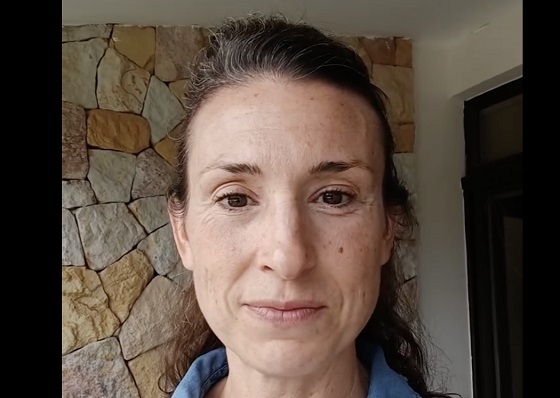
 COVID-192 days ago
COVID-192 days agoPro-freedom Canadian nurse gets two years probation for protesting COVID restrictions
-
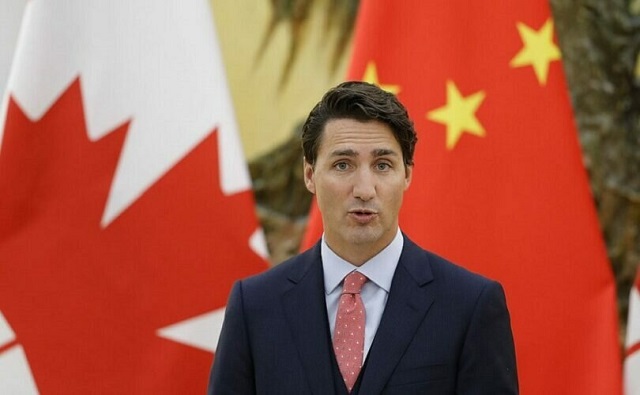
 espionage2 days ago
espionage2 days agoTrudeau’s office was warned that Chinese agents posed ‘existential threat’ to Canada: secret memo
-
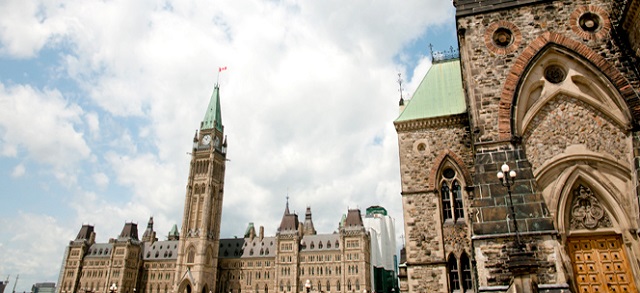
 Economy2 days ago
Economy2 days agoMassive deficits send debt interest charges soaring
-

 Business1 day ago
Business1 day agoBusiness investment key to addressing Canada’s productivity crisis
-

 Jordan Peterson1 day ago
Jordan Peterson1 day agoJordan Peterson slams CBC for only interviewing pro-LGBT doctors about UK report on child ‘sex changes’
-

 International1 day ago
International1 day agoBrussels NatCon conference will continue freely after court overturns police barricade
-
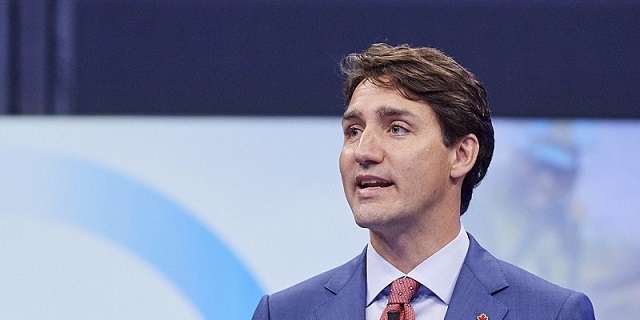
 Business1 day ago
Business1 day agoFederal budget fails to ‘break the glass’ on Canada’s economic growth crisis
-
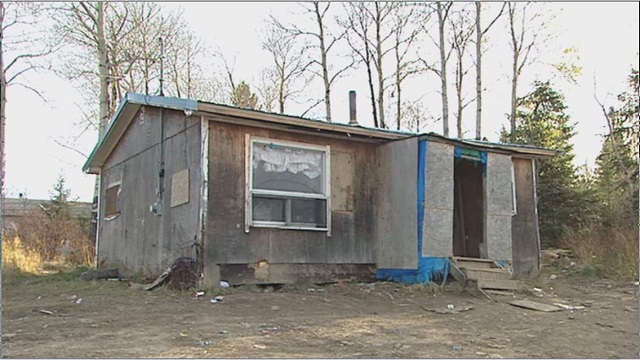
 Frontier Centre for Public Policy1 day ago
Frontier Centre for Public Policy1 day agoThe Smallwood solution






